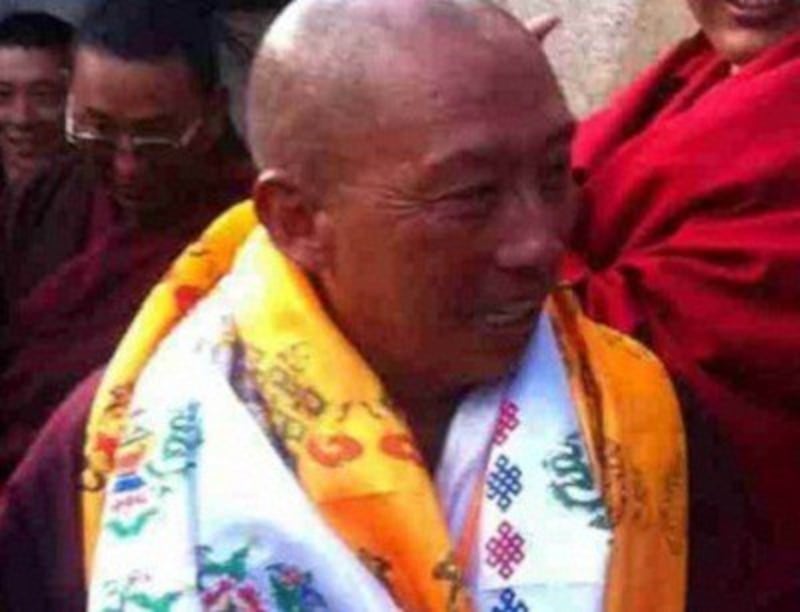Updated at 4:35 p.m. EST on 2014-05-30
Chinese authorities in a protest-hit Tibetan county in Sichuan are forcing area residents to participate in training designed to counter self-immolations and other protests challenging Beijing’s rule in Tibetan areas, according to local sources.
One exercise held this week in Kardze (in Chinese, Ganzi) county’s main town and directed by Chinese security services included numbers of Tibetan government employees who were coerced to take part, a resident of the area told RFA’s Tibetan Service on Thursday.
“Tibetan employees in the Kardze area were forced to participate in an official mock exercise in Kardze town on May 26,” the source said, speaking on condition of anonymity.
Sichuan’s Kardze Tibetan Autonomous Prefecture, in which Kardze county lies, has been the scene of many of the self-immolation protests staged since 2009 by Tibetans opposing Chinese rule and calling for the return of exiled spiritual leader the Dalai Lama.
Along with participating in burning protests, Tibetans in Kardze have also championed Tibetan language and religious rights, causes frequently opposed by Chinese authorities as expressions of Tibetan national and cultural identity.
“[Tibetans] were threatened that they and their parents and other family members would be investigated if they refused to be involved in the exercise,” the source said, adding, “So many had no choice but to participate.”
Also taking part in the exercise were Chinese armed police, regular police, and other personnel “assigned to watch Tibetan activities in the town,” he said.
A total of 131 Tibetans have set themselves ablaze to date in self-immolation protests calling for Tibetan freedom, with another six setting fire to themselves in India and Nepal.

Former prisoner 'welcomed warmly'
Meanwhile, Kardze authorities this week also released a Tibetan monk jailed for anti-China protests after he had served six years of an eight-year sentence, a Tibetan living in exile said, citing local sources.
“Gatruk Dorje, a monk from Beri monastery in Kardze, was released on May 24,” said Namgyal, a former prison mate of Dorje’s now living in India.
“When he arrived in his hometown, the local Tibetans—both monks and laypeople—offered him ceremonial scarves and welcomed him warmly,” Namgyal said.
Sentenced along with two other monks in 2008 for taking part in protests in Kardze town, Dorje had been accused of setting fire to a bridge to prevent Chinese security forces from approaching Beri monastery, he said.
“He was also accused of placing nail-studded wooden boards on the road to stop Chinese vehicles carrying police and paramilitary forces and of distributing protest fliers in Kardze town,” Namgyal said.
Information concerning Dorje’s present health and the reasons for his early release was not immediately available.
Sporadic demonstrations challenging Beijing’s rule have continued in Tibetan-populated areas of China since widespread protests swept the region in 2008.
Reported by Sonam Wangdu and Norbu Damdul for RFA’s Tibetan Service. Translated by Karma Dorje. Written in English by Richard Finney.
CORRECTION: An earlier version of this story listed Kardze county, instead of Kardze prefecture, as the scene of several self-immolation protests. To date, one self-immolation has taken place in Kardze county, while similar protests have occurred in other counties in Kardze prefecture.
